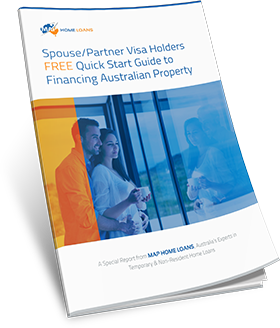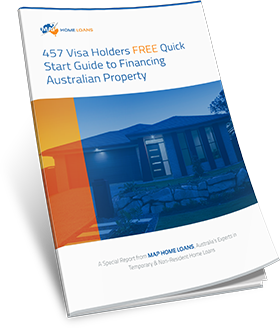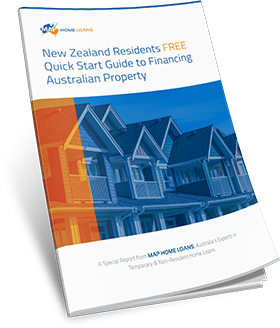What is Labor’s Policy with Respect to Negative Gearing?
Jun 8, 2016 by Map Home LoansLabor’s negative gearing policy was announced in February 2016. Whilst there has been much debate about the merits of negative gearing and whether negative gearing should be abolished, Labor’s decision to make substantial changes to negative gearing and capital gains tax discount has been controversial.
But how does it impact Australian Expats? Craig Joslin, the founder of The Australian Expat Investor, explores the issue.
What is Labor’s Policy with Respect to Negative Gearing?
At this stage, the policy is light on detail, and of course the full implications on investors can only be more fully understood when legislation is brought to Parliament if Labor is elected at the July 2 election. You can find the full 10 pages of Labor’s negative gearing policy by clicking here.
Negative Gearing
Labor’s negative gearing policy states that from 1 July 2017, negative gearing will be limited to “new” housing only, however investments made before this date will not be impacted and so any existing investments that are negatively geared will retain the tax benefits.
From 1 July 2017, if you incur losses from new investments in shares or in existing property (ie. if they are negatively geared), you will be able to use these losses to reduce your investment income tax liabilities only. Any excess losses are carried forward to reduce your capital gains tax liability when the investment is finally sold.
Capital Gains Discount
Labor’s negative gearing policy also includes changes to the capital gains tax regime, whereby Labor is proposing to reduce the capital gains tax discount that applies for assets held longer than 12 months.
All new investments (shares and property) purchased after 1 July 2017 that are held for more than 12 months will be entitled to a 25% discount in capital gains tax (rather than the current 50%). Again, any investments held before 1 July 2017 will not be impacted by the change and will continue to be entitled to the 50% discount in capital gains.
What should you do?
What you should do depends on a number of factors :
- how do Labor’s tax changes impact the tax effectiveness of your current investment strategy?
- what is the likelihood Labor will form government in July 2016?
- how will these tax changes impact both sharemarket valuations and property prices?
There are many opinions circulating on what the impact of Labor’s negative gearing policy may be. My opinion is that any policy that has as a specific objective to make it easier for first home buyers to purchase established properties (and that is the objective of the Labor policy), and that doesn’t provide those home buyers with a specific subsidy, must in itself either reduce property prices or at least slow the growth of property prices over the medium term.
If you believe there is a chance of Labor winning the next election, and you don’t want to miss out on negative gearing benefits, then there is no need to panic. Labor’s changes are proposed to be implemented effective 1 July 2017, and any investments you make before then will be grandfathered from a tax (negative gearing) point of view. And, of course, if Labor wins the election and implements their tax policies, then you will always be allowed to negatively gear any investment in “new” property.
Craig Joslin is the founder of The Australian Expat Investor (www.austexpatinvestor.com), a company dedicated to empowering Australian Expats with the knowledge and tools to develop clear and effective investment strategies to maximise their wealth while living abroad. This article is based on an article originally published here. To understand more about the tax implications for Australians when moving abroad, download Craig’s Special Report – Tax Implications For Australians Working Abroad.
Download Tax Implications Special Report
Disclaimer : This information is for educational purposes only and does not constitute financial or taxation advice. As this information is not advice and has been prepared without taking into account your objectives, financial situation or needs you should, before acting on this information, consider its appropriateness for your circumstances. Independent advice should be obtained from an Australian financial services licensee before making investment decisions, and a registered (tax) financial advisor/accountant in relation to taxation decisions. To the extent permitted by law, we exclude all liability for any loss or damage arising in any way.

FREE Quick-Start Guide To Financing Australian Property
Kobus&WillemienJustin assisted us in buying our first house, in Australia, 10years ago. He just did it again with our second house. Same old story again… Always helpful, always available, always friendly. We didn’t had any stress, he just sorted it and came up with the best results to suit us. What a pleasure to work with. Thanks Justin, you just made it so easy.
Brendan ConquestWe have been working with Justin for almost 10 years and he has always made the process easy and time efficient. Justin’s help to get things over the line is stress free and uncomplicated, he always handles everything with such care and compassion.
We are extremely grateful for Justin’s services and would highly recommend him and the MAP home Loans team to anyone in need of help, advice or guidance with their home loans.
Thank you, Justin!
Timothy RussMy Wife and I worked with Justin to purchase our first home and we couldn’t be happier with the help we received to make our dream a reality. Justin had answer’s to every question and made it very easy to understand how it all works. I highly recommend using Map home loans to take the stress out of buying a house.










